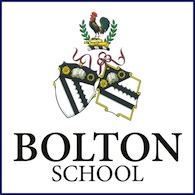Far too many words have been written about the EU referendum and I would not add to them without good cause. My justification is to explore what exactly schools can and should be doing in these exceptional times.
Schools are at the centre of their communities and one very obvious role is the promotion of cohesion, good sense and order. The binary, Yes/No, nature of the referendum is by definition divisive and we can help educate young people about how to deal with that. Bolton SchoolÆs motto, a modern translation of which would be æCourage and ConvictionÆ, emerged from the tumultuous times of the Civil War. Any difference about the referendum result is surely less dramatic. We can teach that you can argue with a friend and still be friendly. To argue about an issue with someone is not the same as having an argument with them.
We can also use the opportunity to discuss democracy. This is only the third all UK referendum there has been, a rare example for us of participative democracy. Our usual process is representative democracy. The difference between the two and the issues when the two systems can lead to different results are interesting. Some countries, for example Switzerland, have much more frequent referenda. Others have no democracy at all. One very heartening aspect of the poll was the large turnout, well over 70% and far more than for the General Election.
We can discuss law and how it works, with the difference between civil rules based law and common case based law being the underpinning issue often between EU regulation and UK judgments. Broad principles or tight definition can lead to a useful analysis of school rules. The economy has been much discussed, especially macroeconomics, and this can provide a nice informal teaching opportunity about how the international economy functions. Discussing how immigration, being a refugee, compassion and racism are four entirely different concepts, all too often conflated, is very important as well.
Finally, there are also opportunities to link across the ages. Grandparents will have voted in the first EEC referendum in the 70Æs. They might remember what the arguments were and what they thought then.
However you feel about the outcome, and that a school must never comment on, if we canÆt excite young people about how democracy works and their part in it now, when will we ever be able to!
This blog first appeared in The Post, a free newspaper published by The Bolton News

Leave a Reply